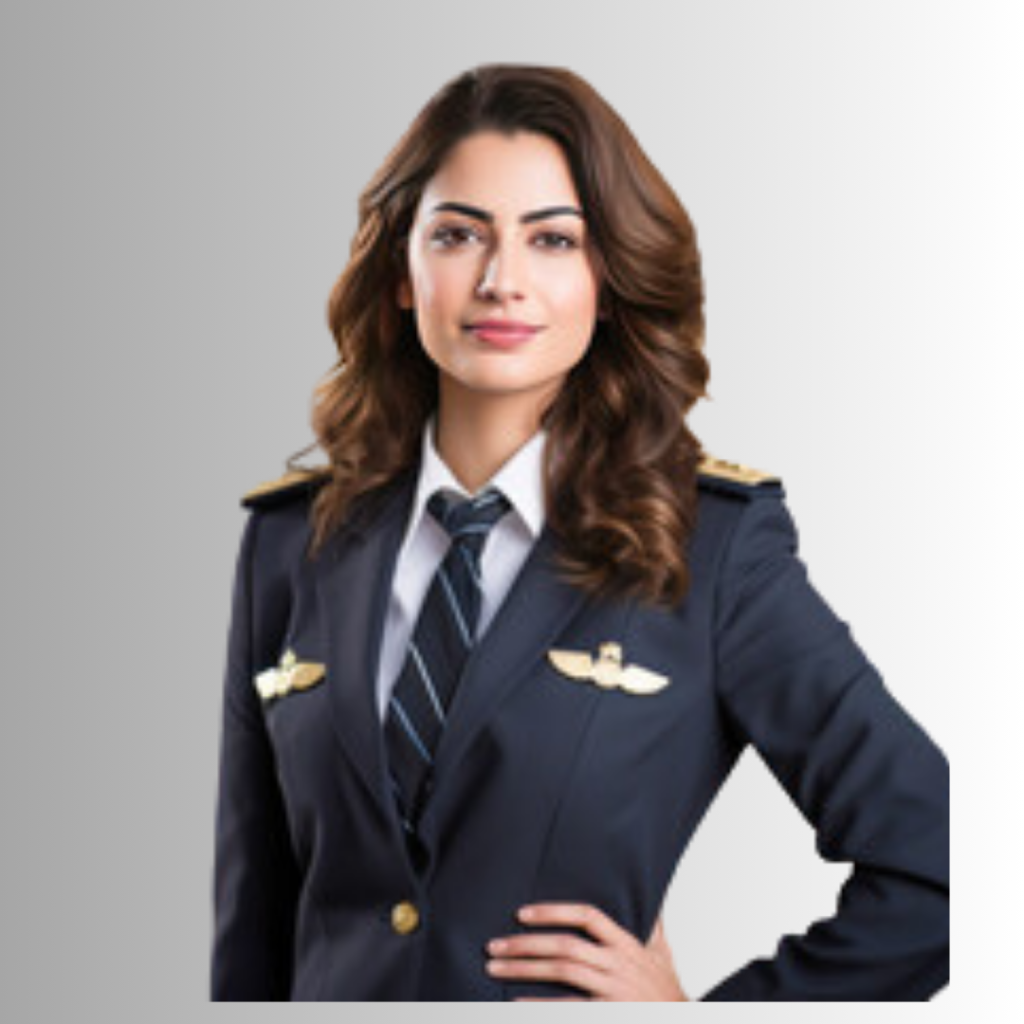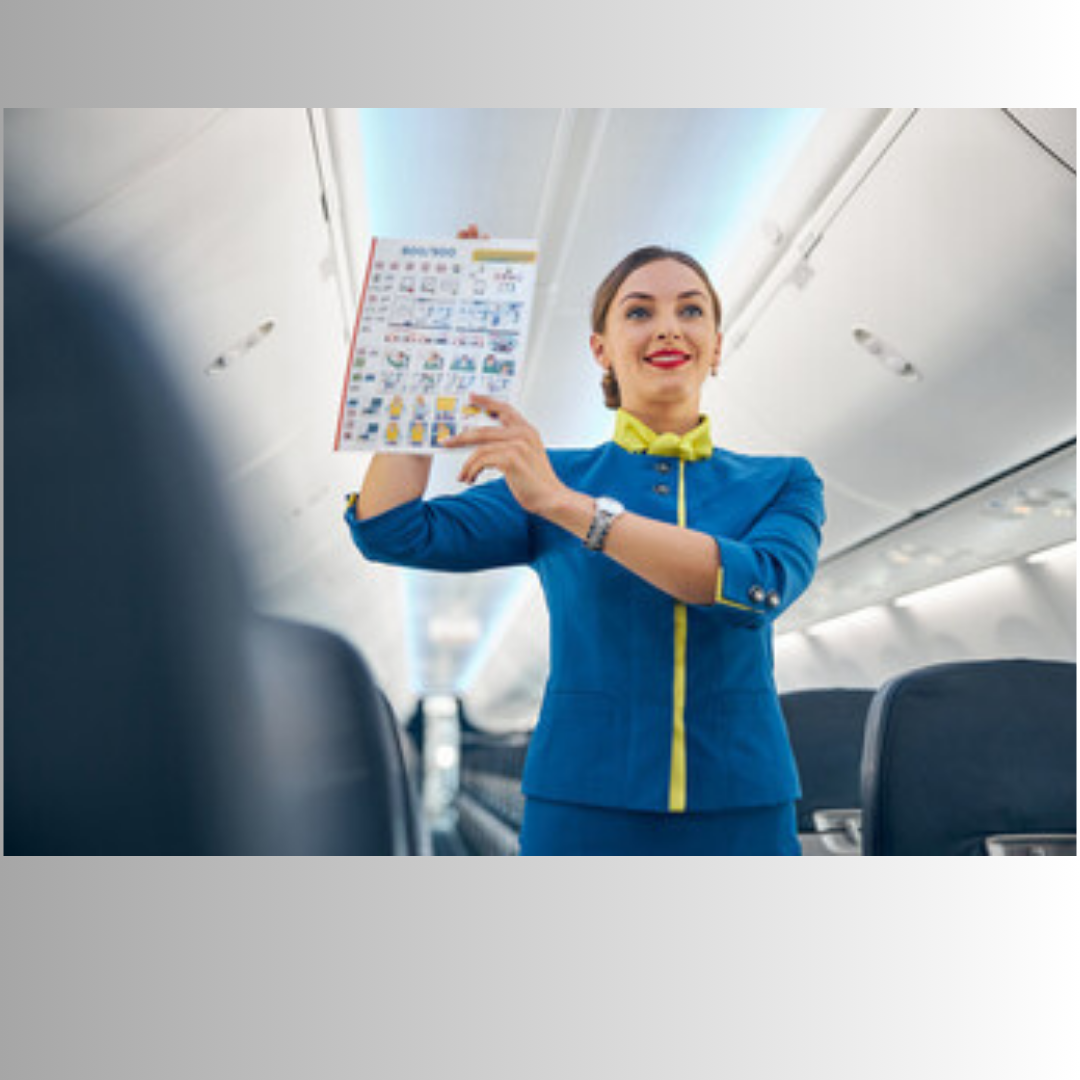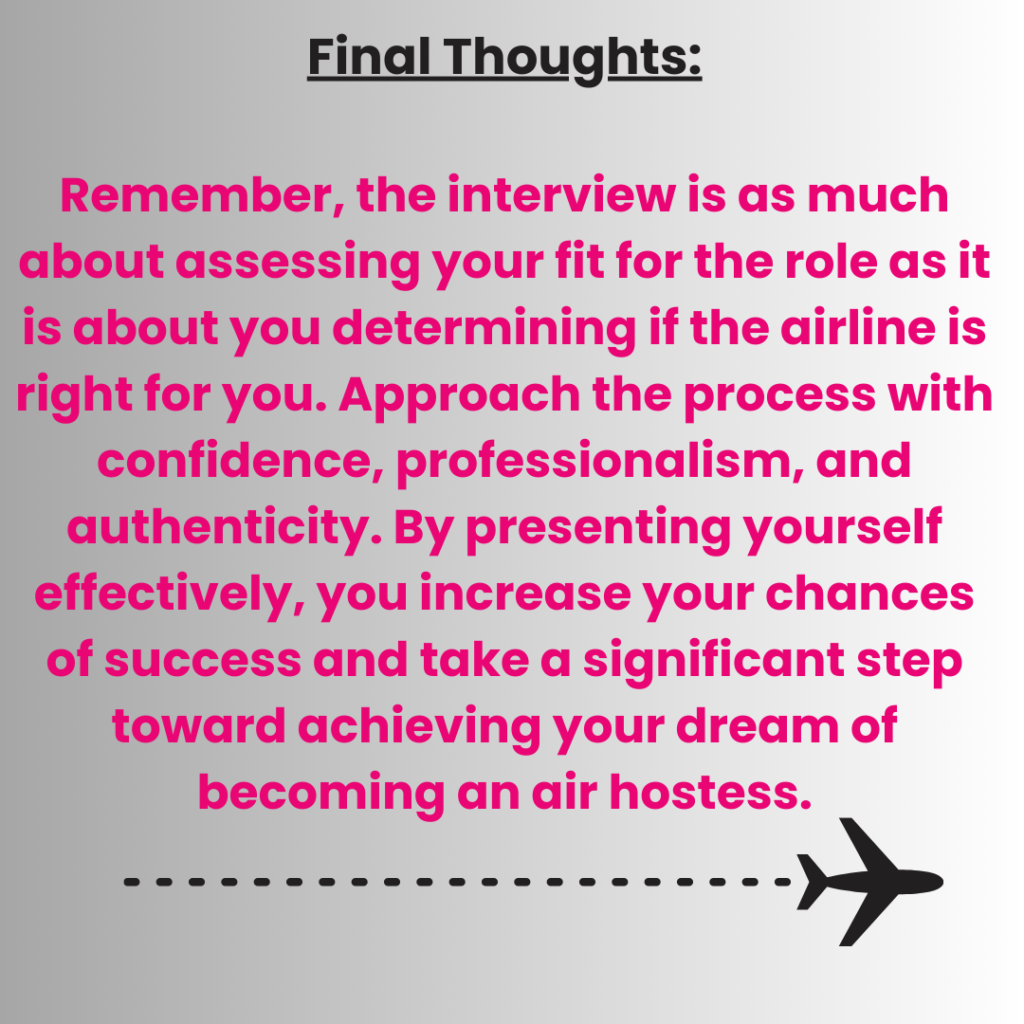



05.
Prepare for Common Questions:
Why Do You Want to Be a Flight Attendant? Prepare a sincere response that reflects your passion for travel, customer service, and the aviation industry. Explain what draws you to this career and why you believe you’re a good fit for the role.
How Would You Handle a Difficult Passenger? Show that you can remain calm and professional in challenging situations. Emphasize your problem-solving skills and your commitment to ensuring a positive passenger experience.
What Are Your Strengths and Weaknesses? Be honest but strategic. Choose strengths that are relevant to the role, such as communication or adaptability. When discussing weaknesses, mention something minor and how you’re working to improve it.


Conclude with a Positive Note
- Thank the Interviewer: At the end of the interview, thank the interviewer for their time and express your enthusiasm for the opportunity to join their team.
Follow-Up: After the interview, consider sending a brief follow-up email to reiterate your interest in the position and to thank the interviewer once again. This small gesture can leave a positive, lasting impression.

